Monitoring product quality attributes (PQAs) throughout monoclonal antibody (mAb) development is vital to ensuring drug safety and efficacy. By adopting orthogonal analytical techniques and integrating new technologies that have the potential to provide more information, it is possible to improve product quality and manufacturing efficiency and make more informed decisions.
Tags
Pharma perspectives: The influence of LC-MS innovation on drug development outsourcing
It is no secret that (bio)pharmaceutical research and development is complex, both scientific and regulatory processes. Working for a contract research organization and more recently for SCIEX has provided an interesting perspective on trends the market experiences that affect many of us.
Overcoming uncertainty in your PFAS analysis
Just like gum on the bottom of a shoe, the existence of per- and poly-fluorinated alkyl substances (PFAS) in our environment is a sticky one. If you’re in the field of environmental testing, then you’re all too familiar with the threat these substances have on public health. While we have learned a lot about them over the years, there is still much more to understand. With the right detection methods, we can gather the information we need to empower us to make informed decisions on reducing the risks they impose.

Your success and voice go a long way!
At the heart of everything we do is ensuring that your workflows and team are empowered to achieve optimal results with your SCIEX instruments, software, consumables, and services. Every interaction with SCIEX is designed to support your success through the dedication...

LC-MS system replacement: Are you ready?
Meeting deadlines in a bioanalysis laboratory can be a big challenge. Older, less sensitive and less reliable LC-MS systems make it even more difficult. Even the disruption caused by the installation and validation can be disconcerting and delay decisions. Does this sound familiar?

Guide decisions during cell line development with more information at the intact level
Monitoring product quality attributes (PQAs) throughout monoclonal antibody (mAb) development is vital to ensuring drug safety and efficacy. By adopting orthogonal analytical techniques and integrating new technologies that have the potential to provide more information, it is possible to improve product quality and manufacturing efficiency and make more informed decisions.

Metabolite identification and peace of mind
Managing metabolite identification (Met ID) studies is challenging, so what is at the top of your priority list as you plan the year ahead? Ensuring you have the data needed to manage product safety, meeting deadlines, staff recruitment and training, maintaining compliance, capital expenses, or something else?
Does SCIEX provide APIs?
Where I can get the API of the software?
Loss the contact closure signal
our 7600 couple with nanoLC Ultimate 3000 via contact closure. it has run without any loss connection during the batch. Just yesterday, the last injection keep equilibrating system until the LC finished the gradient run. We closed the software and power off LC and MS then started again but it did not help. The Dionex engineer also checked their LC and triggerring cable found both are ok.
Optimized rolling collision energy curves for IDA and SWATH DIA for peptides
During data dependent acquisition (DDA or IDA) or SWATH acquisition, the collision energy can be automatically adjusted according to the mass/charge and charge of the peptide. This dependency has been well characterized on our QTOF systems. By selecting rolling...

What has the Echo® MS system done for the pharma industry? (And don’t just take our word for it!)
SCIEX was very proud to have an illustration of the Acoustic Ejection Mass Spectrometry (AEMS) technology that powers the Echo® MS system on the front cover of the Journal of the American Society for Mass Spectrometry in January 2023. The associated article—Ultrahigh-Throughput Intact Protein Analysis with Acoustic Ejection Mass Spectrometry—was co-authored by scientists from SCIEX and Merck.
Merging two FASTA files
There is an easy way to merge two FASTA files together. Open notepad and type this string: type %*>"newfile.fasta" Enter any name for the FASTA file between the quotes. Save the file as: Merge FASTA files.bat Copy the two files you want to merge into the same...
High complexity of the lipidome
The complexity of the lipidome is diverse in the structure and there are many combinatorial isoforms that are available within nature. Currently, many different techniques are required to fully characterize a lipid molecule. What if you could do it in a single...
What is the difference between MRM3 vs MS/MS/MS (MS3)?
The MRM3 workflow and the MS3 scan are functionally the same QTRAP system scan, but used with different goals in mind. The main difference is how these scans are used in the whole MS workflow. With MS3 scans, you can use these in a data dependent mode for discovery...
Downloading results from SCIEX Data Store or BaseSpace
Once your data processing sessions have completed, the results files are saved back to either SCIEX Data Store or BaseSpace. These can be downloaded from the cloud to your desktop for additional analysis. Please see these community posts to learn more: Explaining the...
Controlling the M5 MicroLC system with SCIEX OS software using contact closure
Contact closure can be used to control external devices that are not directly controlled by SCIEX OS software. A sample batch is first created in the SCIEX OS software for MS acquisition, and then a similar batch is created on an external LC device with the required...
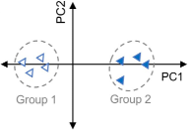
What are my normalization options in MarkerView software and when should I use them?
In an LC-MS experiment there are multiple sources of variance that can confound the quality of your results. This variation can be biological e.g. differences between treated and control groups, but can also be non-biological, usually from small variations in...
Quickly compare identification results from ProteinPilot software
When a ProteinPilot Software search is complete, a ProteinPilot report is generated that contains all the false discovery rate (FDR) analysis information. More information on using the large and small ProteinPilot reports can be found here When doing method...

What’s in your citrus oil?
Craig Butt explains a non-targeted omics approach to characterizing and profiling compounds in citrus oil Read time: 4 minutes There is increasing interest among consumers in the benefits of natural products containing citrus beyond the traditionally known benefits of...
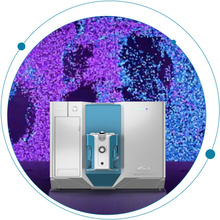
Breaking down the SCIEX Triple Quad™ 7500 LC-MS/MS System – QTRAP® Ready
Sensitivity and robustness carry different meanings in the world of mass spectrometry. Generally, sensitivity refers to an instrument’s ability to achieve lower limits of detection (LOD). Robustness, on the other hand, refers to an instrument’s ability to consistently...

Importing acquisition methods from Analyst software to SCIEX OS software
The SCIEX Triple Quad 7500 system is the first nominal mass instrument to be released completely on SCIEX OS software. Moving to a new software solution can be time consuming with the need to transfer numerous methods to the new platform. SCIEX OS software helps...
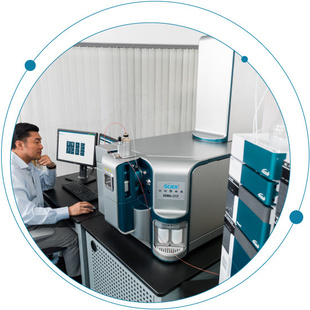
The top 5 questions to ask when investing in accurate mass technology for forensic toxicology workflows
Are you considering the purchase of a high-resolution accurate mass (HRAM) instrument for your forensic toxicology lab? To help ensure you invest in a solution that ideally meets your needs, ask yourself the following key questions. 1. How do I ensure my results...

A rising star in food allergen research: proteomics of shellfish allergen
It’s important to know what you’re eating, especially if you suffer from a food allergy.
About 220 million people worldwide live with a food allergy.1 These numbers, along with the complexity and severity of conditions, continue to rise. In America, there are about 32 million food allergy sufferers—5.6 million of those are children under the age of 18.2.2 That’s 1 out of every 13 children, or about 2 in every classroom. From a financial perspective, the cost of food allergy childcare for US families is up to $25 billion
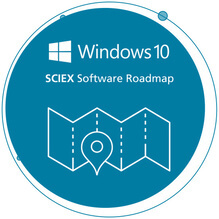
Calling SCIEX Software Users: Windows 10 Support for all SCIEX Software
As a researcher in a busy lab, the software driving your work is critical to your success, and the timely transition of SCIEX applications to Windows 10 is no exception. In early 2020 Microsoft will be ending Windows 7 support, and we want you to know we are taking...

Detect the Signal, Not the Noise
Improving the specificity and selectivity of your assay Your LC-MS assay is only as good as its power to discern your target compound from everything else. Standards dissolved in clean solvents can make beautiful assays, but analytes in real-world samples can behave...

Software Licensing Comparison: Subscription or Perpetual?
Are you confused by software licensing? Do you want to know the difference between a subscription and a perpetual license? In this blog, we compare both options and explain the value of each choice for your laboratory. Years ago, the perpetual license model was the...
Make the Leap from GC to LC-MS/MS
Choosing the best technique for your analysis can be tough. Should you go with gas chromatography/mass spectrometry (GC-MS) or liquid chromatography/tandem mass spectrometry (LC-MS/MS)? That’s the key question. That’s why we’re here to help. The Limitations of...
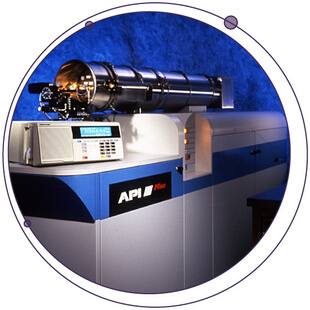
Sensitivity, It’s at the Very Heart of Who We Are
Walk into any modern pharmaceutical company these days, and you’ll likely find at least one if not many, SCIEX LC-MS/MS instruments. Assays for the detection and quantitation of small molecule drugs, metabolites, biotherapeutics, biomarkers, and many other analytes...

Uncovering the Links Between Childhood Growth, Body Size, and a Woman’s Risk of Breast Cancer
Welcome to the second in a series of posts marking International Women’s Day, and our ongoing support of World Cancer Research Fund. This installment is a review by Dr. Jennifer Baker, of her work, that, with the help of a WCRF grant, is studying body size and its links to breast cancer. Dr. Baker, Lead Investigator at Denmark’s Frederiksberg Hospital, has a Ph.D. in Human Nutrition from Cornell University. Her research focuses on clinical epidemiology.
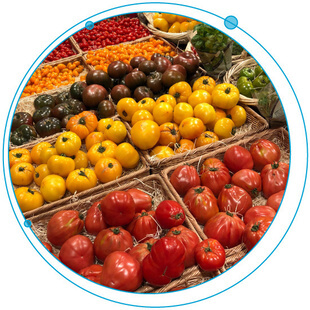
A Multi-Omics Database for Tomato Research and Breeding
Ace. Beefsteak. Big Boy. Kumato. Early Girl. Roma. Sun Gold. San Marzano. These are just a few of the thousands of varieties of tomato plants available today. And while all of these varieties may be very different with respect to crop yield, disease resistance,...
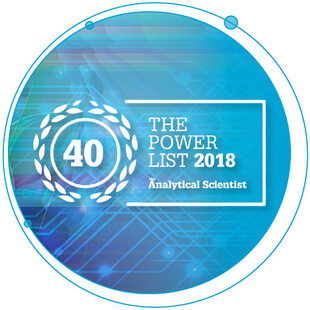
Pathway to Success: Young Metabolomics Researchers Named in The Analytical Scientist’s Power List
The direct correlation of the metabolome to the phenotype means metabolomics is one of the most sought-after approaches for the study of disease and wellness, yet the separation, detection, quantification, and unambiguous identification of a chemically diverse...